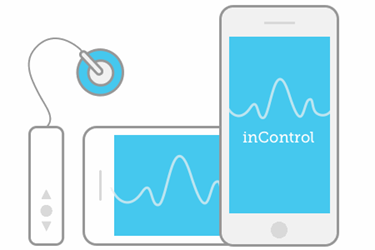NIH Artificial Pancreas Pivotal Trials Get Underway

By Jof Enriquez,
Follow me on Twitter @jofenriq

The National Institutes of Health (NIH) announced that four NIH-sponsored pivotal clinical trials to test artificial pancreas systems are set to begin in the next two years. The studies are funded by a total of $41 million worth of grants from NIH’s National Institute of Diabetes and Digestive and Kidney Diseases (NIDDK) and take closed-loop artificial pancreas systems a step closer to regulatory approval.
NIH is a staunch proponent of artificial pancreas technology, having awarded millions of dollars in research grants and hosting a multidisciplinary workshop that discussed current and emerging systems, clinical testing modalities, and other areas of research and development to accelerate the approval and commercialization of fully automated diabetes management systems.
Medtronic's FDA-approved MiniMed 670G device is a hybrid system that can automatically adjust insulin levels, but users must enter mealtime carbohydrates consumed, accept bolus correction recommendations, and periodically calibrate the sensor. Researchers are trying to develop true closed-loop systems that can detect blood sugar levels even during mealtimes without user input and adjust insulin doses automatically, thus lifting a heavy burden from patients.
To that end, a series of clinical trials are scheduled this year and in 2018 that are designed to track diabetics at home, largely unsupervised, for longer periods of time using artificial pancreas technology. Research staff will monitor patients' progress remotely and will check how the devices perform in real-life settings. These pivotal trials are considered the final steps between testing fully automated devices and requesting regulatory approval from FDA.
The Jaeb Center for Health Research in Tampa, FL, will serve as coordinating center for these four clinical trials:
- Recruiting has begun for the International Diabetes Closed-Loop trial, a two-part study by the University of Virginia (UVA) Medical School. This trial will test inControl, an artificial pancreas device system (APDS) developed by the UVA Center for Diabetes Technology and licensed by TypeZero Technologies, a startup company in Charlottesville, VA. The first trial, which will measure safety and efficacy, will follow 240 people age 14 and up with type 1 diabetes for six months at nine study sites in the U.S. and Europe. A follow-up study of 180 participants at Harvard University will test an alternative algorithm and how it affects insulin delivery. The study is being led by Drs. Boris Kovatchev and Stacey Anderson of the University of Virginia, Charlottesville, and is backed with a $12.6 million grant from NIH.
- Recruiting early this year, a clinical trial led by Dr. Roman Hovorka of the University of Cambridge (UK) will use a closed-loop system comprising Medtronic's 640G pump and Enlite 3 sensor, and an Android phone running Cambridge Model Predictive Control Algorithm. The $6.4-million study will monitor 130 youth aged six to 18 for a full year while using an artificial pancreas system with a smartphone component. Trial sites are in California, Colorado, Connecticut, Minnesota, and the UK.
- A three-month study comparing Medtronic's FDA-approved hybrid device to a next-generation system called MD-Logic Automated Insulin Delivery (MD-Logic), developed by the Diabetes Technology Center at Schneider Children's Medical Center of Israel, will begin late this year. It establishes glucose control by applying fuzzy logic theory to imitate lines of reasoning of diabetes caregivers. One hundred youth will be monitored at U.S. sites in California, Connecticut, Florida, Massachusetts, and Minnesota, as well as in Germany, Israel, and Slovenia, under a nearly $7-million grant.
- Slated to commence in mid-2018 is six-month trial of a bihormonal bionic pancreas (BP) with a dual-chamber pump to deliver both insulin and its counteracting hormone, glucagon, using tested algorithms for automated dual-hormone delivery. It will enroll 480 children and adults with type 1 diabetes in California, Massachusetts, Michigan, Missouri, North Carolina, Ohio, and Washington. The research team will utilize a $12-million grant from NIH and is led by Drs. Steven Russell of the Massachusetts General Hospital in Boston and Ed Damiano of Boston University.
“For many people with type 1 diabetes, the realization of a successful, fully automated artificial pancreas is a dearly held dream. It signifies a life freer from nightly wake-up calls to check blood glucose or deliver insulin, a life freer from dangerous swings of blood glucose,” said NIDDK Director Dr. Griffin P. Rodgers, in a news release. “Nearly 100 years since the discovery of insulin, a successful artificial pancreas would mark another huge step toward better health for people with type 1 diabetes.”
Image credit: TypeZero Technologies
